
Find Help
More Items From Ergsy search
-

Is there a vaccine for West Nile Virus?
Relevance: 100%
-

What is West Nile Virus?
Relevance: 100%
-
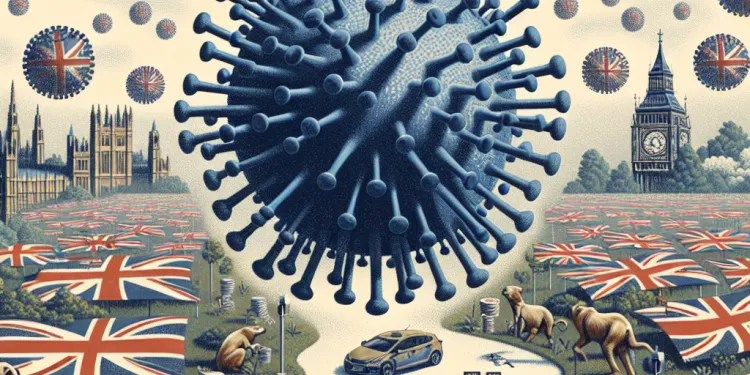
How is West Nile Virus transmitted?
Relevance: 97%
-

What is West Nile Virus?
Relevance: 97%
-

How prevalent is West Nile virus in the UK?
Relevance: 92%
-

Is there a test for West Nile Virus?
Relevance: 90%
-

Are there treatments for West Nile Virus?
Relevance: 90%
-
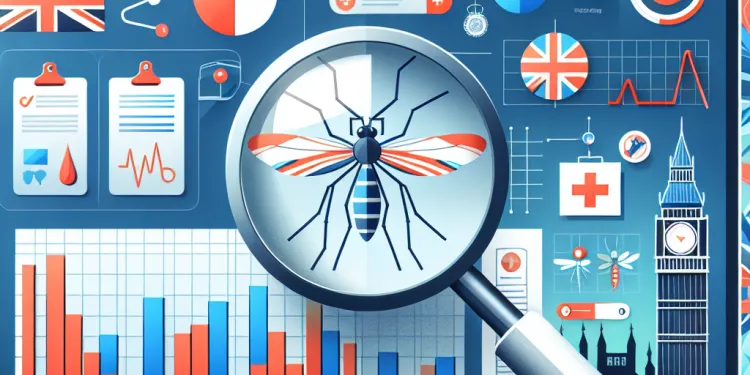
How do health officials monitor West Nile Virus?
Relevance: 90%
-
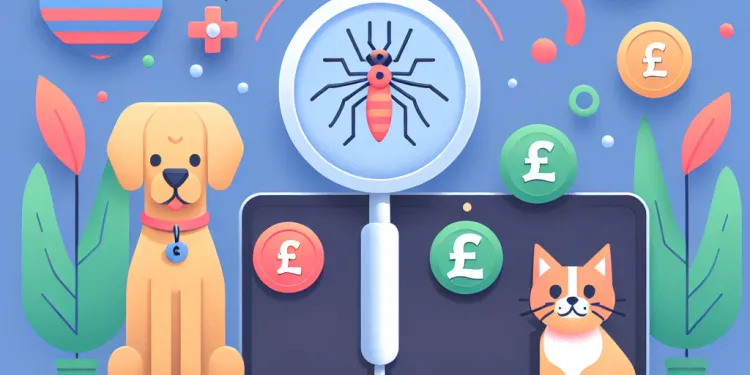
Can pets get West Nile Virus?
Relevance: 90%
-

Which countries are affected by West Nile Virus?
Relevance: 89%
-

What are the symptoms of West Nile Virus?
Relevance: 88%
-

Can mosquitoes carrying West Nile Virus be controlled?
Relevance: 84%
-

What should I do if I think I have West Nile Virus?
Relevance: 84%
-

Who is at risk for severe illness from West Nile Virus?
Relevance: 82%
-

Are UK mosquitoes capable of transmitting Zika virus?
Relevance: 63%
-

What diseases are spread by mosquitos in the UK in 2025?
Relevance: 62%
-

How can West Nile Virus be prevented?
Relevance: 59%
-
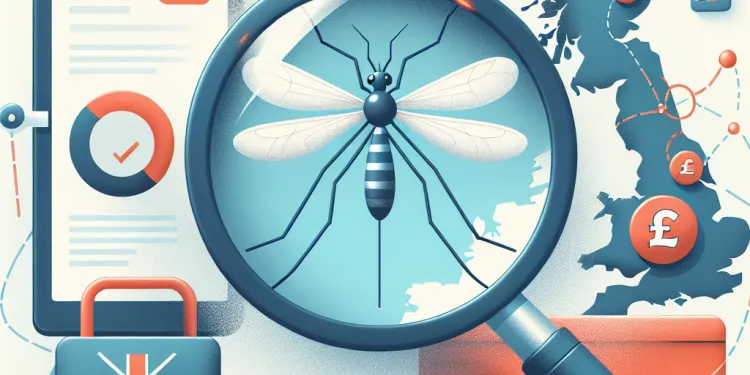
Are there any government initiatives to control mosquitoes in the UK?
Relevance: 59%
-

Can you get West Nile Virus more than once?
Relevance: 55%
-
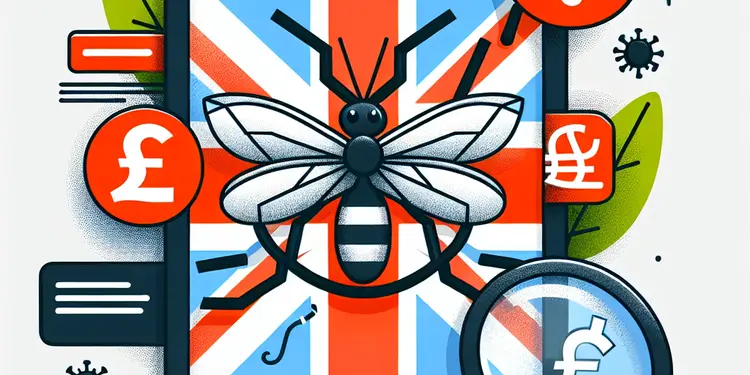
Do all mosquitoes in the UK carry diseases?
Relevance: 53%
-

What other viruses are tested for in blood donations?
Relevance: 45%
-
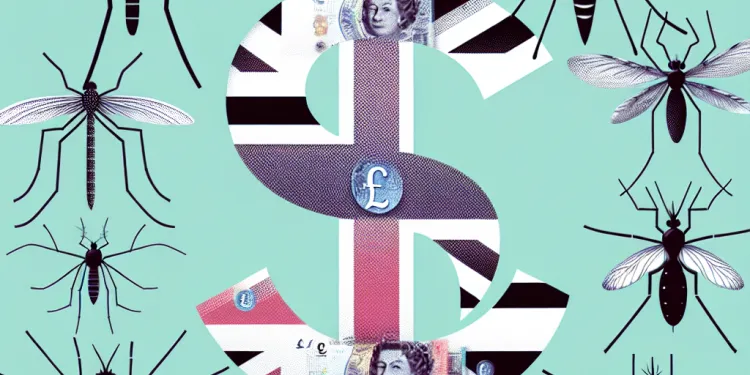
What types of mosquitoes are found in the UK?
Relevance: 42%
-

What regions of the UK are most affected by mosquito-borne diseases?
Relevance: 39%
-

How is Nipah Virus controlled during outbreaks?
Relevance: 38%
-
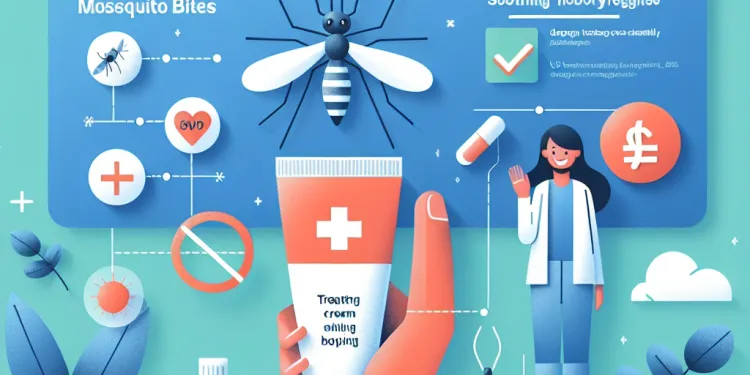
How can I treat mosquito bites?
Relevance: 36%
-

What measures are being taken to control Marburg virus outbreaks?
Relevance: 36%
-

Are climate changes affecting mosquito populations in the UK?
Relevance: 36%
-

How is Chikungunya virus transmitted?
Relevance: 36%
-

What research is being conducted on mosquito-borne diseases in the UK?
Relevance: 35%
-
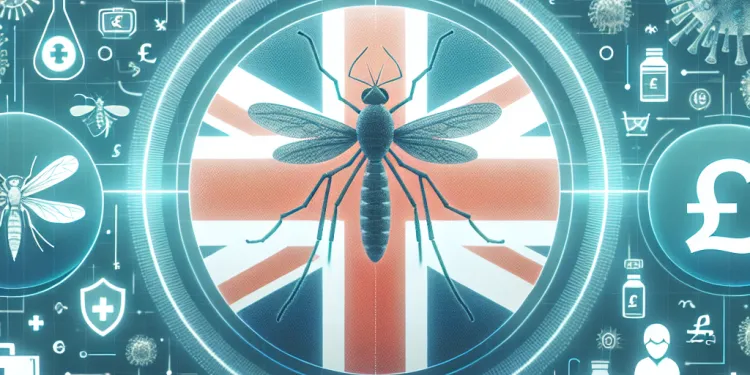
How is the Zika virus transmitted?
Relevance: 34%
-

Do UK mosquitoes carry diseases?
Relevance: 34%
-

When is West Nile Virus most active?
Relevance: 34%
-
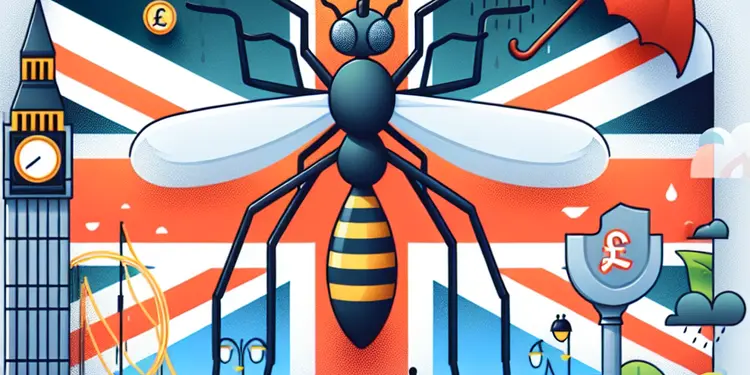
Is there a season when mosquito-borne diseases are more likely in the UK?
Relevance: 34%
-
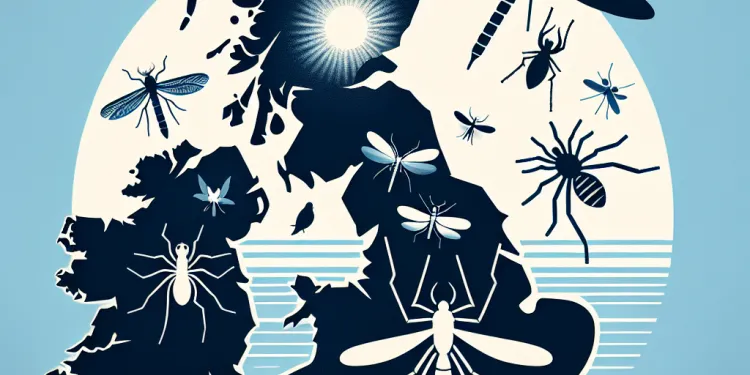
Are there any native mosquito predators in the UK?
Relevance: 34%
-
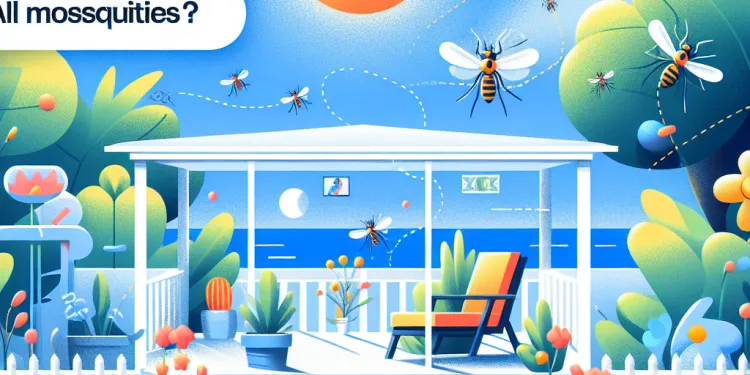
Do all mosquitoes bite humans?
Relevance: 33%
-
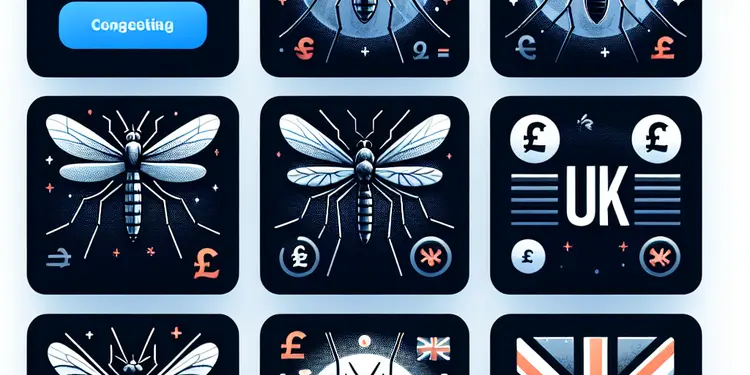
What kinds of mosquitoes are found in the UK?
Relevance: 33%
-

Is the Marburg virus related to the Ebola virus?
Relevance: 32%
-

What is the Ebola virus?
Relevance: 32%
-

Is Zika virus present in the UK?
Relevance: 32%
-
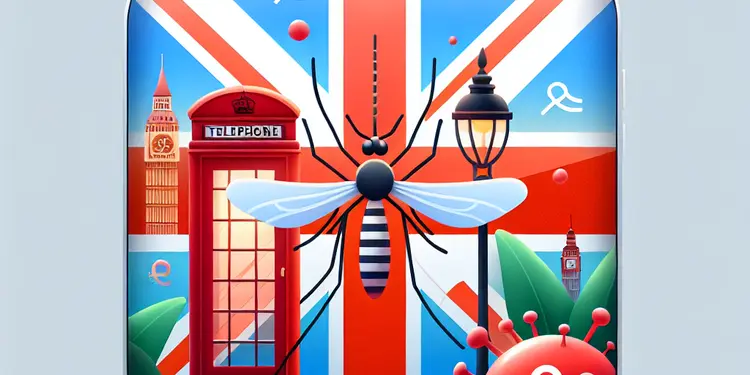
Can mosquitoes transmit any bacterial diseases in the UK?
Relevance: 31%
Understanding West Nile Virus in the UK
West Nile Virus (WNV) is a mosquito-borne virus primarily transmitted to humans through the bites of infected mosquitoes. While it is more prevalent in warmer regions, climate change and increased mobility have raised concerns about its potential spread to the UK. Although the virus is not endemic in the UK, vigilance is essential as the risk remains. Understanding how to control mosquito populations is crucial in preventing the potential spread of WNV.
The Role of Mosquitoes in Transmission
Mosquitoes are the primary vectors for West Nile Virus. When these insects feed on the blood of birds infected with the virus, they can transmit it to other animals and humans. The species most commonly associated with WNV transmission is the Culex mosquito, which is not as prevalent in the UK but might establish populations due to warming temperatures and increasing global travel.
Controlling Mosquito Populations
Controlling mosquito populations is a critical strategy for preventing the spread of West Nile Virus. This involves targeting their breeding sites and minimizing exposure to mosquito bites. In the UK, measures can include eliminating standing water where mosquitoes breed, such as in bird baths, flower pots, and gutters. Regular cleaning and maintenance of these sites can help reduce mosquito populations.
Use of Insecticides
In areas where mosquito populations are high, the judicious use of insecticides can be effective. Insecticides can be applied to water bodies to kill larvae or sprayed in areas where adult mosquitoes are active. It is essential to follow environmental guidelines to prevent harming non-target species and to avoid the development of resistance in mosquito populations.
Biological Control Methods
Biological control methods involve using natural predators or pathogens to control mosquito populations. Introducing fish that eat mosquito larvae or using bacterial agents like Bacillus thuringiensis israelensis (Bti) can effectively reduce mosquito numbers without the negative effects associated with chemical insecticides. These methods can be part of an integrated pest management approach.
Public Education and Personal Protection
Educating the public about the risks associated with West Nile Virus and how to protect themselves is vital. People should use mosquito repellents containing DEET, wear long sleeves and trousers, and use mosquito nets when necessary. Public health campaigns can help raise awareness and encourage individuals to take protective measures.
Surveillance and Research
Ongoing research and surveillance are critical to understand better and manage the risk of West Nile Virus in the UK. Monitoring bird populations, mosquito activity, and climate patterns help predict and prepare for any potential outbreaks. Collaborations between health authorities and researchers can lead to more effective control strategies.
Conclusion
While the current risk of West Nile Virus in the UK is low, proactive measures to control mosquito populations and protect against bites are essential. By combining environmental management, chemical control, biological methods, public education, and research, the UK can mitigate the potential impact of this virus and protect public health.
Understanding West Nile Virus in the UK
West Nile Virus is a germ spread by mosquito bites. It usually lives in warm places, but it might come to the UK because of changes in the weather and more people traveling. Right now, it's not common in the UK, but we still need to be careful. It's important to know how to control mosquitoes to stop the virus from spreading.
The Role of Mosquitoes in Transmission
Mosquitoes spread West Nile Virus. They get the virus when they bite birds that have it, and then can give it to other animals and people. The Culex mosquito is mainly responsible for spreading the virus. These mosquitoes are not very common in the UK yet, but they could become more common if the weather gets warmer and more people travel from places where the virus is present.
Controlling Mosquito Populations
To stop the virus, we need to control mosquito numbers. This means finding and getting rid of places where mosquitoes lay eggs, like pools of still water in bird baths, flower pots, and gutters. Cleaning these spots regularly can help reduce the number of mosquitoes.
Use of Insecticides
In places with lots of mosquitoes, using insect spray can help. Sprays can be put in water to kill baby mosquitoes or in areas where adult mosquitoes fly. It's important to use these sprays safely to protect other animals and to stop mosquitoes from becoming resistant to them.
Biological Control Methods
Biological control uses living things to lower mosquito numbers. For example, fish that eat mosquito babies or special bacteria that hurt mosquitoes can be used. These ways are safer for the environment than chemicals and can be part of a big plan to control pests.
Public Education and Personal Protection
Teaching people about West Nile Virus and keeping safe is very important. People should use bug sprays with DEET, wear long clothes, and use nets to avoid bites. Health campaigns can help everyone understand and do these things.
Surveillance and Research
Keeping an eye on bird and mosquito numbers and studying weather changes can help us know more and prepare for the virus better. Health authorities and researchers working together can create better plans to control the virus.
Conclusion
Even though the West Nile Virus isn't a big risk in the UK now, it's important to control mosquitoes and protect against bites. By using environmental management, safe sprays, natural predators, teaching people, and doing research, the UK can reduce the risk of this virus and keep people healthy.
Frequently Asked Questions
Useful Links
This website offers general information and is not a substitute for professional advice.
Always seek guidance from qualified professionals.
If you have any medical concerns or need urgent help, contact a healthcare professional or emergency services immediately.
Some of this content was generated with AI assistance. We’ve done our best to keep it accurate, helpful, and human-friendly.
- Ergsy carfully checks the information in the videos we provide here.
- Videos shown by Youtube after a video has completed, have NOT been reviewed by ERGSY.
- To view, click the arrow in centre of video.
- Most of the videos you find here will have subtitles and/or closed captions available.
- You may need to turn these on, and choose your preferred language.
- Go to the video you'd like to watch.
- If closed captions (CC) are available, settings will be visible on the bottom right of the video player.
- To turn on Captions, click settings .
- To turn off Captions, click settings again.
More Items From Ergsy search
-

Is there a vaccine for West Nile Virus?
Relevance: 100%
-

What is West Nile Virus?
Relevance: 100%
-

How is West Nile Virus transmitted?
Relevance: 97%
-

What is West Nile Virus?
Relevance: 97%
-

How prevalent is West Nile virus in the UK?
Relevance: 92%
-

Is there a test for West Nile Virus?
Relevance: 90%
-

Are there treatments for West Nile Virus?
Relevance: 90%
-

How do health officials monitor West Nile Virus?
Relevance: 90%
-

Can pets get West Nile Virus?
Relevance: 90%
-

Which countries are affected by West Nile Virus?
Relevance: 89%
-

What are the symptoms of West Nile Virus?
Relevance: 88%
-

Can mosquitoes carrying West Nile Virus be controlled?
Relevance: 84%
-

What should I do if I think I have West Nile Virus?
Relevance: 84%
-

Who is at risk for severe illness from West Nile Virus?
Relevance: 82%
-

Are UK mosquitoes capable of transmitting Zika virus?
Relevance: 63%
-

What diseases are spread by mosquitos in the UK in 2025?
Relevance: 62%
-

How can West Nile Virus be prevented?
Relevance: 59%
-

Are there any government initiatives to control mosquitoes in the UK?
Relevance: 59%
-

Can you get West Nile Virus more than once?
Relevance: 55%
-

Do all mosquitoes in the UK carry diseases?
Relevance: 53%
-

What other viruses are tested for in blood donations?
Relevance: 45%
-

What types of mosquitoes are found in the UK?
Relevance: 42%
-

What regions of the UK are most affected by mosquito-borne diseases?
Relevance: 39%
-

How is Nipah Virus controlled during outbreaks?
Relevance: 38%
-

How can I treat mosquito bites?
Relevance: 36%
-

What measures are being taken to control Marburg virus outbreaks?
Relevance: 36%
-

Are climate changes affecting mosquito populations in the UK?
Relevance: 36%
-

How is Chikungunya virus transmitted?
Relevance: 36%
-

What research is being conducted on mosquito-borne diseases in the UK?
Relevance: 35%
-

How is the Zika virus transmitted?
Relevance: 34%
-

Do UK mosquitoes carry diseases?
Relevance: 34%
-

When is West Nile Virus most active?
Relevance: 34%
-

Is there a season when mosquito-borne diseases are more likely in the UK?
Relevance: 34%
-

Are there any native mosquito predators in the UK?
Relevance: 34%
-

Do all mosquitoes bite humans?
Relevance: 33%
-

What kinds of mosquitoes are found in the UK?
Relevance: 33%
-

Is the Marburg virus related to the Ebola virus?
Relevance: 32%
-

What is the Ebola virus?
Relevance: 32%
-

Is Zika virus present in the UK?
Relevance: 32%
-

Can mosquitoes transmit any bacterial diseases in the UK?
Relevance: 31%


